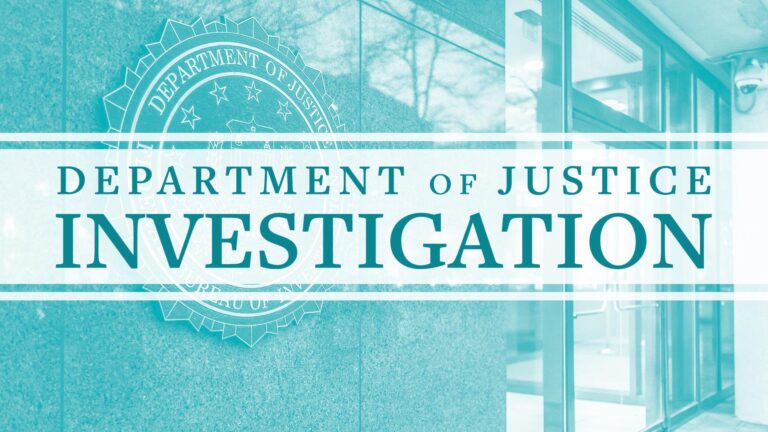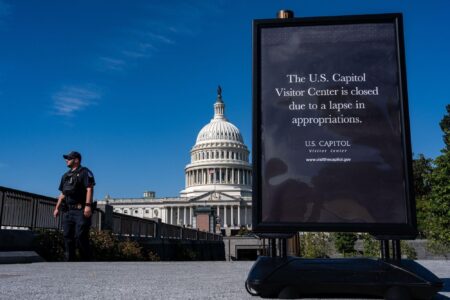DOJ Probes Allegations of Crime Data Alteration by Washington, D.C. Police
The U.S. Department of Justice has commenced an official investigation into claims that the Metropolitan Police Department of Washington, D.C. manipulated crime statistics. Reports indicate that certain violent crime figures may have been intentionally minimized or modified to portray a safer environment than reality reflects. This situation spotlights serious concerns regarding the integrity and transparency of law enforcement data reporting.
The investigation is concentrating on several critical aspects, including:
- Validity of crime data — examining if crime rates were purposefully adjusted to mask increases.
- Oversight mechanisms — evaluating whether existing internal controls are adequate to prevent data falsification.
- Consequences for community relations — assessing how inaccurate crime reporting might damage public confidence and influence policy.
| Investigation Focus | Approach | Expected Results |
|---|---|---|
| Data Authenticity | Comparing police records with independent crime databases | Detection of inconsistencies |
| Regulatory Review | Analyzing reporting standards and supervisory practices | Suggestions for enhanced accountability |
| Community Engagement | Gathering input from residents and advocacy groups | Strategies to restore public trust |
Consequences of Falsified Crime Data on Public Trust and Policy Development
Allegations of crime data manipulation by the D.C. police threaten to erode the public’s faith in law enforcement institutions. When crime statistics are distorted, the true scope of criminal activity becomes obscured, undermining transparency and accountability. This breach can lead to widespread skepticism toward official information, reduced cooperation between communities and police, and increased social tensions.
From a governance standpoint, reliable crime data is essential for crafting effective policies. Lawmakers and city officials depend on accurate statistics to allocate funding, design crime reduction programs, and assess the success of interventions. Distorted data risks:
- Misallocation of resources — leaving high-crime neighborhoods underserved.
- Inaccurate legislative measures — based on flawed perceptions of safety needs.
- Ineffective community initiatives — failing to target underlying issues due to erroneous information.
| Area Affected | Potential Impact |
|---|---|
| Community Trust | Decline in confidence and engagement |
| Policy Formulation | Suboptimal strategies and crime prevention efforts |
| Law Enforcement Reputation | Increased scrutiny and diminished credibility |
Examination of Historical Crime Reporting and Noted Anomalies
An internal DOJ assessment uncovered alarming irregularities in the crime data reported by the D.C. Metropolitan Police over recent years. Key issues identified include the systematic underreporting of violent crimes and the reclassification of serious offenses to less severe categories, thereby skewing public safety narratives. Specific concerns highlighted were:
- Delays in logging aggravated assaults and robberies.
- Downgrading felony charges to misdemeanors without clear justification.
- Exclusion of certain reported crimes from official records.
The table below summarizes discrepancies between reported and estimated actual crime figures for 2019:
| Crime Type | Reported Incidents (2019) | Estimated Actual Incidents | Variance (%) |
|---|---|---|---|
| Aggravated Assault | 1,200 | 1,650 | 27% |
| Robbery | 840 | 1,100 | 24% |
| Burglary | 1,500 | 1,620 | 7.4% |
Enhancing Accountability via Transparent Crime Data Reporting
The exposure of these discrepancies has amplified calls from community leaders and watchdog organizations for greater transparency in police crime data management. Accurate and honest reporting is vital not only for effective governance but also for fostering mutual trust between law enforcement and the public. Without robust oversight, the risk of data manipulation persists, undermining justice and public safety efforts.
Experts advocate for comprehensive reforms, including:
- Regular independent audits to verify the accuracy of crime data.
- Uniform reporting standards implemented across all police departments to ensure consistency.
- Deployment of advanced digital tools to detect and prevent data tampering.
- Publicly accessible transparency reports to promote accountability and community engagement.
| Reform Initiative | Primary Advantage |
|---|---|
| Independent Audits | Guarantee data reliability |
| Standardized Protocols | Ensure data comparability |
| Advanced Technology | Minimize manipulation risks |
| Transparency Reports | Strengthen public confidence |
Final Thoughts
As the Department of Justice continues its examination into the alleged crime data manipulation by the Washington, D.C. police, the spotlight remains on the need for transparency and accountability in law enforcement. The findings of this investigation could profoundly influence policing standards and public trust in the capital. Stay tuned for ongoing updates as this story develops.







